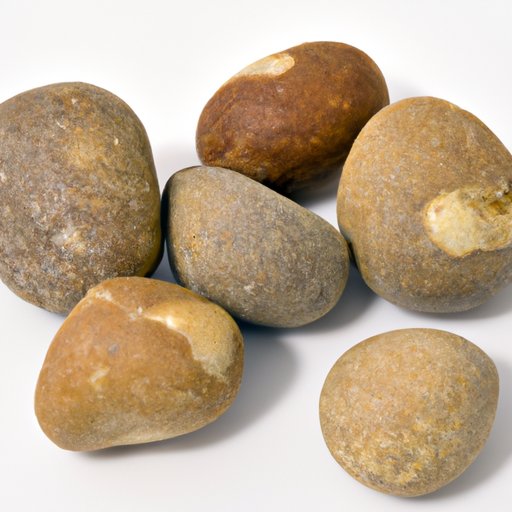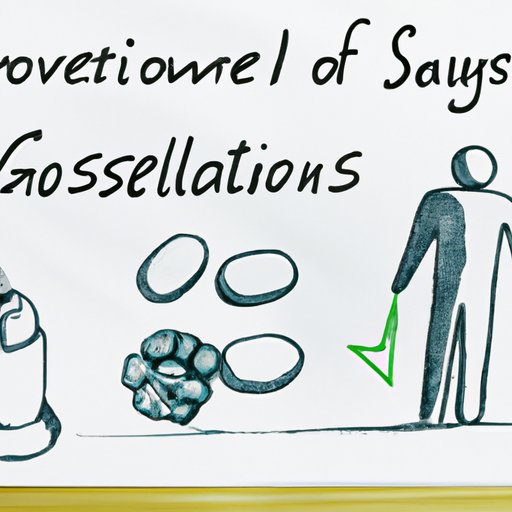
Introduction
Gallstones are small, solid masses that form inside the gallbladder, a pear-shaped organ located on the right side of the abdomen. These hardened substances can cause intense pain and discomfort, particularly after a meal. According to the National Institute of Diabetes and Digestive and Kidney Diseases (NIDDK), gallstones affect approximately 10-15% of adults in the United States. If you are experiencing symptoms of a gallstone attack, it is essential to seek medical attention as soon as possible.
Understanding Gallstones: Why And How They Develop
Gallstones can develop in different shapes, sizes, and colors. There are two main types of gallstones: cholesterol stones and pigment stones. Cholesterol stones are the most common type, accounting for roughly 80% of all cases. They form when the liver produces too much cholesterol or the bile contains too much bilirubin. On the other hand, pigment stones develop when the bile contains too much bilirubin, a compound that gives bile its yellow-green color.
The exact cause of gallstones is unknown, but some factors can increase your risk of developing them, such as:
- Being female
- Being over 40 years old
- Being overweight or obese
- Eating a high-fat, high-cholesterol, or low-fiber diet
- Pregnancy
- Rapid weight loss
- Heredity
To diagnose gallstones, your doctor may recommend one or more tests, such as an ultrasound, a CT scan, or an endoscopic retrograde cholangiopancreatography (ERCP). These tests can help detect the presence of gallstones, their size and number, and whether they are causing any complications.
The Top Foods To Eat (And Avoid) When Trying To Pass A Gallstone
Dietary modifications can help prevent and manage gallstones. If you have been diagnosed with gallstones, your doctor may recommend eating a low-fat, high-fiber diet that includes plenty of fruits, vegetables, whole grains, and lean protein sources, such as fish and skinless poultry. Avoiding or limiting alcohol, caffeine, fried foods, dairy products, and processed snacks can also help reduce your symptoms.
It is essential to stay hydrated and drink plenty of water throughout the day. Dehydration can increase the risk of bile buildup and cause your symptoms to worsen. Additionally, limiting your portion sizes and eating frequent small meals can help ease digestion and prevent overloading your gallbladder.
7 Natural Remedies To Pass A Gallstone Without Surgery
If you have a small or single gallstone, you may be able to pass it without surgery. Some natural remedies can help dissolve and eliminate gallstones from your system. Here are seven natural ways to pass gallstones:
- Apple Cider Vinegar: Dilute 1-2 tablespoons of apple cider vinegar in a glass of water and drink it up to three times a day. The acidic properties of the vinegar can help break down and soften the stones, making them easier to pass.
- Lemon Juice and Olive Oil: Mix 1/4 cup of lemon juice and 1/4 cup of olive oil in a glass and drink it followed by a glass of water. The mixture can help stimulate bile production and promote gallstone elimination.
- Dandelion: Dandelion is a natural diuretic that can help flush out toxins and reduce inflammation. You can take it in supplement form or drink it as a tea.
- Peppermint: Peppermint can help soothe digestive issues and calm gallbladder spasms. Drink peppermint tea or chew on fresh peppermint leaves to relieve your symptoms.
- Artichoke: Artichoke contains compounds that can help stimulate bile flow and reduce cholesterol levels. Take artichoke supplements or eat fresh or canned artichoke hearts in your diet.
- Milk Thistle: Milk thistle is a herb that can help protect and regenerate liver cells. It can also stimulate bile secretion and improve digestion. You can take milk thistle supplements or drink it as a tea.
- Turmeric: Turmeric is a potent antioxidant and anti-inflammatory spice that can help reduce gallstone symptoms and inflammation. Add turmeric to your meals or drink it as a tea with honey and lemon.
While these natural remedies have shown promising results, they may not be suitable for everyone. Some of these remedies can interact with certain medications or pose risks to people with an underlying medical condition. Always consult your doctor before starting any natural therapy to ensure it is safe and effective for you.
How To Prepare For A Successful Gallstone Flush At Home
A gallstone flush involves drinking a mixture of olive oil, lemon juice, and Epsom salts to help eliminate gallstones from your system. Before attempting a gallstone flush at home, it is crucial to prepare your body and follow some precautions. Here are the steps to follow:
- Consult your doctor to ensure you are healthy enough to perform a gallstone flush.
- Choose a day when you have a light breakfast and lunch, avoiding any fatty or spicy foods.
- Drink plenty of water throughout the day to stay hydrated.
- Two hours before bedtime, mix 1/2 cup of fresh lemon juice with 1/2 cup of olive oil and drink it. Follow it with 1-2 teaspoons of Epsom salts dissolved in a glass of water.
- Lie down on your right side with your knees bent, placing a warm compress over your liver area. Stay still for 30 minutes and go to bed.
- Expect to experience diarrhea and some discomfort during the flush.
A gallstone flush can be a safe and effective way to eliminate small gallstones without surgery, but it is not suitable for everyone. Talk to your doctor before trying a gallstone flush at home.
The Pros And Cons Of Using Medications To Pass Gallstones
Medications can help dissolve gallstones and relieve your symptoms. Your doctor may prescribe one or more medications depending on your situation. Here are some medications used to treat gallstones:
- Ursodiol: Ursodiol is a bile acid that can help dissolve small cholesterol stones. It works by reducing the cholesterol content in bile and increasing the production of bile. Ursodiol may take several months to produce noticeable effects.
- Chenodeoxycholic acid: Chenodeoxycholic acid can help dissolve small cholesterol stones by changing the composition of the bile. It may cause diarrhea and other gastrointestinal side effects.
- Methyl tert-butyl ether (MTBE): MTBE is a chemical solvent that can dissolve gallstones directly. It requires an experienced radiologist to perform the procedure and may cause side effects such as nausea, vomiting, and abdominal pain.
While these medications can help pass gallstones, they may not work for everyone. Some medications can cause side effects or interact with other medications you are taking. Additionally, medication therapy may take longer to produce noticeable effects than natural remedies or surgical options.
What To Expect During A Gallstone Attack And When To Seek Medical Attention
A gallstone attack usually occurs after a meal, especially a fatty one. The symptoms can range from mild to severe and include:
- Abdominal pain and cramping, usually in the upper right quadrant or the center of the abdomen
- Indigestion, nausea, and vomiting
- Bloating and flatulence
- Fever and chills if an infection is present
If you experience severe abdominal pain, high fever, or jaundice (yellow discoloration of the skin and eyes), seek emergency medical attention immediately. These symptoms can indicate a serious complication of gallstones, such as acute cholecystitis, pancreatitis, or liver damage. Your doctor may recommend diagnostic tests, pain medications, or surgical interventions to manage your condition.

Preventing Gallstones: Lifestyle Changes To Consider To Lower Your Risk
Preventing gallstones involves making some lifestyle and dietary changes to manage your risk factors. Here are some tips:
- Maintain a healthy weight and body mass index (BMI) by exercising regularly and eating a balanced, low-fat diet.
- Avoid or limit alcohol and caffeine consumption.
- Increase your fiber intake by eating more fruits, vegetables, whole grains, and legumes.
- Drink plenty of water and stay hydrated throughout the day.
- Avoid fast food, processed snacks, fried foods, and fatty cuts of meat.
- Talk to your doctor if you are taking any medications that can increase your risk of gallstones.
Conclusion
Gallstones can cause mild to severe symptoms and require prompt medical attention. If you have been diagnosed with gallstones, dietary modifications and natural remedies may help alleviate your symptoms and prevent complications. However, it is essential to talk to your doctor before starting any new treatment or therapy to ensure it is safe and effective for you.
By following the lifestyle changes and prevention strategies mentioned in this article, you can reduce your risk of developing gallstones and improve your overall health and well-being.




